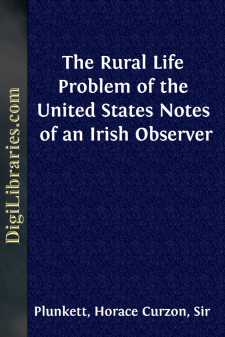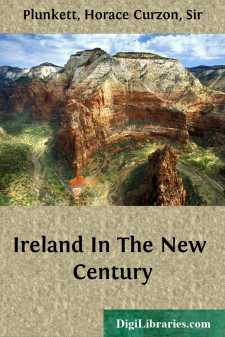Categories
- Antiques & Collectibles 13
- Architecture 36
- Art 48
- Bibles 22
- Biography & Autobiography 813
- Body, Mind & Spirit 142
- Business & Economics 28
- Children's Books 17
- Children's Fiction 14
- Computers 4
- Cooking 94
- Crafts & Hobbies 4
- Drama 346
- Education 46
- Family & Relationships 57
- Fiction 11829
- Games 19
- Gardening 17
- Health & Fitness 34
- History 1377
- House & Home 1
- Humor 147
- Juvenile Fiction 1873
- Juvenile Nonfiction 202
- Language Arts & Disciplines 88
- Law 16
- Literary Collections 686
- Literary Criticism 179
- Mathematics 13
- Medical 41
- Music 40
- Nature 179
- Non-Classifiable 1768
- Performing Arts 7
- Periodicals 1453
- Philosophy 64
- Photography 2
- Poetry 896
- Political Science 203
- Psychology 42
- Reference 154
- Religion 513
- Science 126
- Self-Help 84
- Social Science 81
- Sports & Recreation 34
- Study Aids 3
- Technology & Engineering 59
- Transportation 23
- Travel 463
- True Crime 29
The Rural Life Problem of the United States Notes of an Irish Observer
Categories:
Description:
Excerpt
CHAPTER I
THE SUBJECT AND THE POINT OF VIEW
I submit in the following pages a proposition and a proposal—a distinction which an old-country writer of English may, perhaps, be permitted to preserve. The proposition is that, in the United States, as in other English-speaking communities, the city has been developed to the neglect of the country. I shall not have to labour the argument, as nobody seriously disputes the contention; but I shall trace the main causes of the neglect, and indicate what, in my view, must be its inevitable consequences. If I make my case, it will appear that our civilisation has thus become dangerously one-sided, and that, in the interests of national well-being, it is high time for steps to be taken to counteract the townward tendency.
My definite proposal to those who accept these conclusions is that a Country Life movement, upon lines which will be laid down, should be initiated by existing associations, whose efforts should be supplemented by a new organisation which I shall call a Country Life Institute. There are in the United States a multiplicity of agencies, both public and voluntary, available for this work. But the army of workers in this field of social service needs two things: first, some definite plan for coördinating their several activities, and, next, some recognised source of information collected from the experience of the Old and the New World. It is the purpose of these pages to show that these needs are real and can be met.
Two obvious questions will here suggest themselves. Why should the United States—of all countries in the world—be chosen for such a theme instead of a country like Ireland, where the population depends mainly upon agriculture? What qualifications has an Irishman, be he never so competent to advise upon the social and economic problems of his own country, to talk to Americans about the life of their rural population? I admit at once that, while I have made some study of American agriculture and rural economy, my actual work upon the problem of which I write has been restricted to Ireland. But I claim, with some pride, that, in thought upon rural economy, Ireland is ahead of any English-speaking country. She has troubles of her own, some inherent in the adverse physical conditions, and others due to well-known historical causes, that too often impede the action to which her best thoughts should lead. But the very fact that those who grapple with Irish problems have to work through failure to success will certainly not lessen the value to the social student of the experience gained. I recognise, however, that I must give the reader so much of personal narrative as is required to enable him to estimate the value of my facts, and of the conclusions which I base upon them.
To have enjoyed an Irish-American existence, to have been profoundly interested in, and more or less in touch with, public affairs in both countries, to have been an unwilling politician in Ireland and not a politician at all in America, is, to say the least, an unusual experience for an Irishman. But such has been my record during the last twenty years. Soon after graduating at Oxford, I was advised to live in mountain air for a while, and for the next decade I was a ranchman along the foothills of the Rockies. To those who knew that my heart was in Ireland, I used to explain that I might some day be in politics at home, and must take care of my lungs. In 1889 I returned to live and work in my own country, but I retained business interests, including some farming operations, in the Western States. Ever since then I have taken my annual holiday across the Atlantic, and have studied rural conditions over a wider area in the United States than my business interests demanded....



